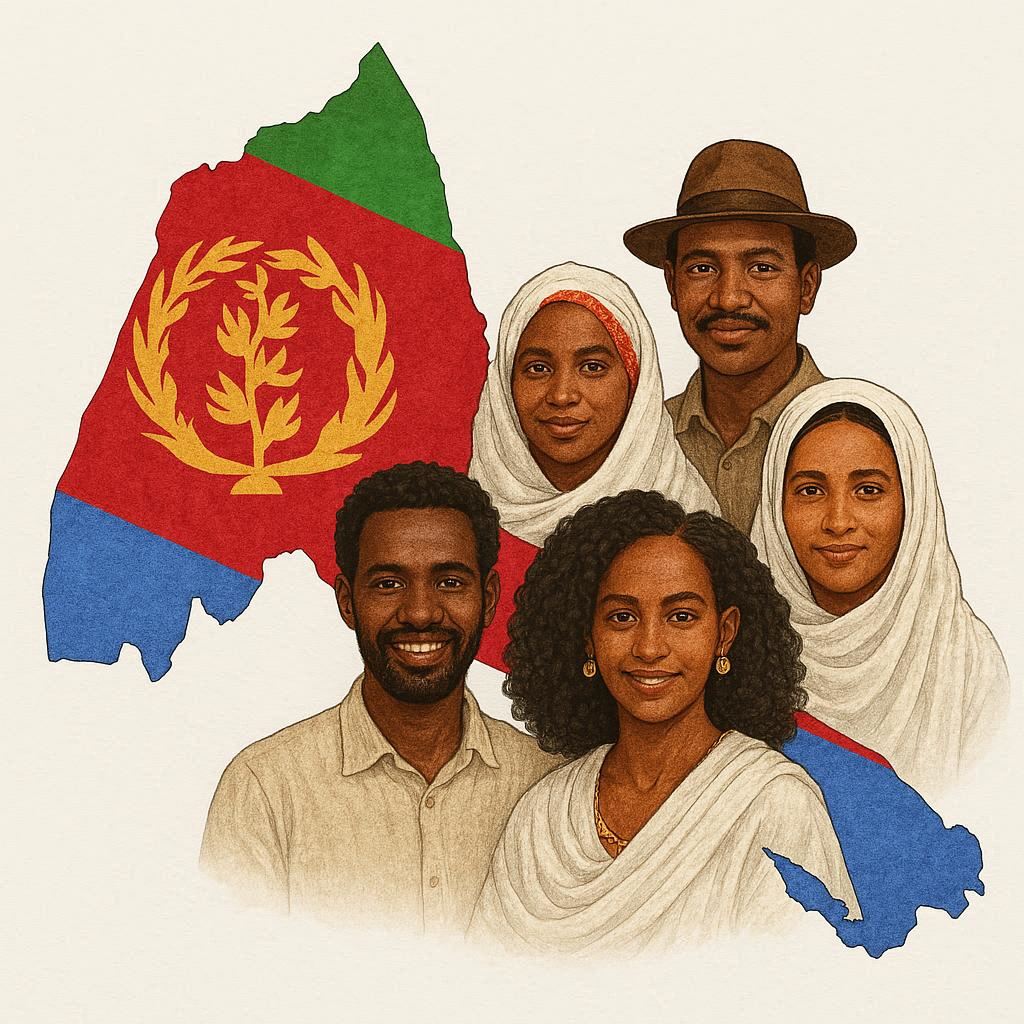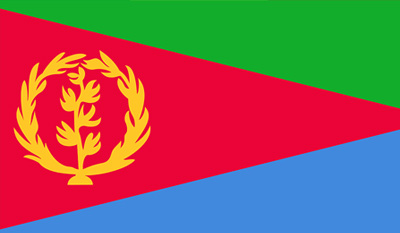Day 30
Eritrea
Praise Points
Strong communal and family bonds that preserve language, music, and liturgy — local practices that transmit belief and hope across generations. — “They devoted themselves to the apostles’ teaching and the fellowship, to the breaking of bread and the prayers.” Acts 2:42.
A people’s endurance and capacity to rebuild community after hardship — social resilience that can become a constructive rebuilding. — “He has sent me to proclaim liberty to the captives and recovering of sight to the blind, to set at liberty those who are oppressed.” Isaiah 61:1.
Prayer Points
Forced conscription, forced labor, and state abuses that fracture families and prevent stable discipleship. — “The LORD executes justice for the oppressed, and gives food to the hungry. The LORD sets the prisoners free.” Psalm 146:7.
State control of religious life, imprisonment of believers, and suppression of independent churches that break communal trust and public witness. — “For they have persecuted the righteous and taken a bribe, and the widow’s plea does not come before them.” — Isaiah 10:2 (applies to rulers who abuse justice) and Acts 4:29-31 for prayer under persecution.
Mass emigration and brain-drain that remove young leaders and dilute communal memory, leaving the church with fewer leaders and fewer youth. — “And let us consider how to stir up one another to love and good works, not neglecting to meet together.” Hebrews 10:24-25.
Denominational splits, distrust, and leadership vacuums create fragmentation rather than a unified witness. — “I appeal to you, brothers, by the name of our Lord Jesus Christ, that all of you agree, and that there be no divisions among you.” 1 Corinthians 1:10.
A Call for Salvation
Build resilient, decentralized discipleship to train lay leaders and mentor teens in small household groups so faith is passed on even if formal institutions are closed. “And what you have heard from me through many witnesses entrust to faithful men who will be able to teach others also.” — 2 Timothy 2:2.
Advocate non-violently for human dignity and religious freedom while practicing Christian civic responsibility: document abuses, partner with international faith-based relief and legal-advocacy organizations to protect families and prisoners. “Learn to do good; seek justice, correct oppression; bring justice to the fatherless, plead the widow’s cause.” — Isaiah 1:17. Pray for a coordinated legal/advocacy desk in the diaspora churches, safe channels for family support, and public theological statements calling for the release of prisoners.
Serve people in need visibly and persistently in the community (schools, health, food support) so that Christianity reflects as sacrificial, neighbor-focused love — a testimony that counters fear and indifference. “If anyone has the world’s goods and sees his brother in need, yet closes his heart against him, how does God’s love abide in Him?” — 1 John 3:17.
Eritrea sits on the Red Sea, with its ancient history linked to the Aksumite world and long trading links across the Red Sea. Over centuries, it experienced successive external rule (Ottoman-influenced coastal powers, a long period of Italian colonial rule, and later federation/annexation with Ethiopia) before a hard-fought war of independence in the late 20th century and formal independence in 1993. Eritrean culture is richly layered: several major languages (Tigrinya, Saho, Tigre, and others), strong oral and liturgical traditions, and a mix of religions — Christianity (ancient Oriental/Orthodox forms and newer Protestant communities) and Islam — that shape music, festivals, art, and communal life.
Christian faith has profound roots in the region (the Christianization of Aksum in late Antique times), and the Eritrean Orthodox tradition is one of Africa’s oldest continuous Christian communities. Historically, the missionary and episcopal efforts associated with the Aksumite Church and figures such as Frumentius (often credited with bringing and consolidating Christianity in Aksum in the 4th century) were pivotal in establishing an ancient Christian identity. Over centuries, the ancient church maintained close liturgical and theological ties with other Oriental Orthodox communities; in modern times, Roman Catholic and multiple Protestant/Evangelical missions and leaders have also contributed to Christian life and institutions in Eritrea.
Many Eritrean teens live with daily pressures that shape faith formation: forced national service (often long-term conscription), reports of forced labor and restricted freedoms, limited access to open religious education for some denominations, family separation from emigration, economic hardship, and the trauma those conditions cause. Those pressures push young people toward pragmatic survival choices (migration, prioritizing income over church life), increase distrust of institutions (including religious bodies seen as aligned or compromised), and reduce time and space for sustained discipleship and community life.


